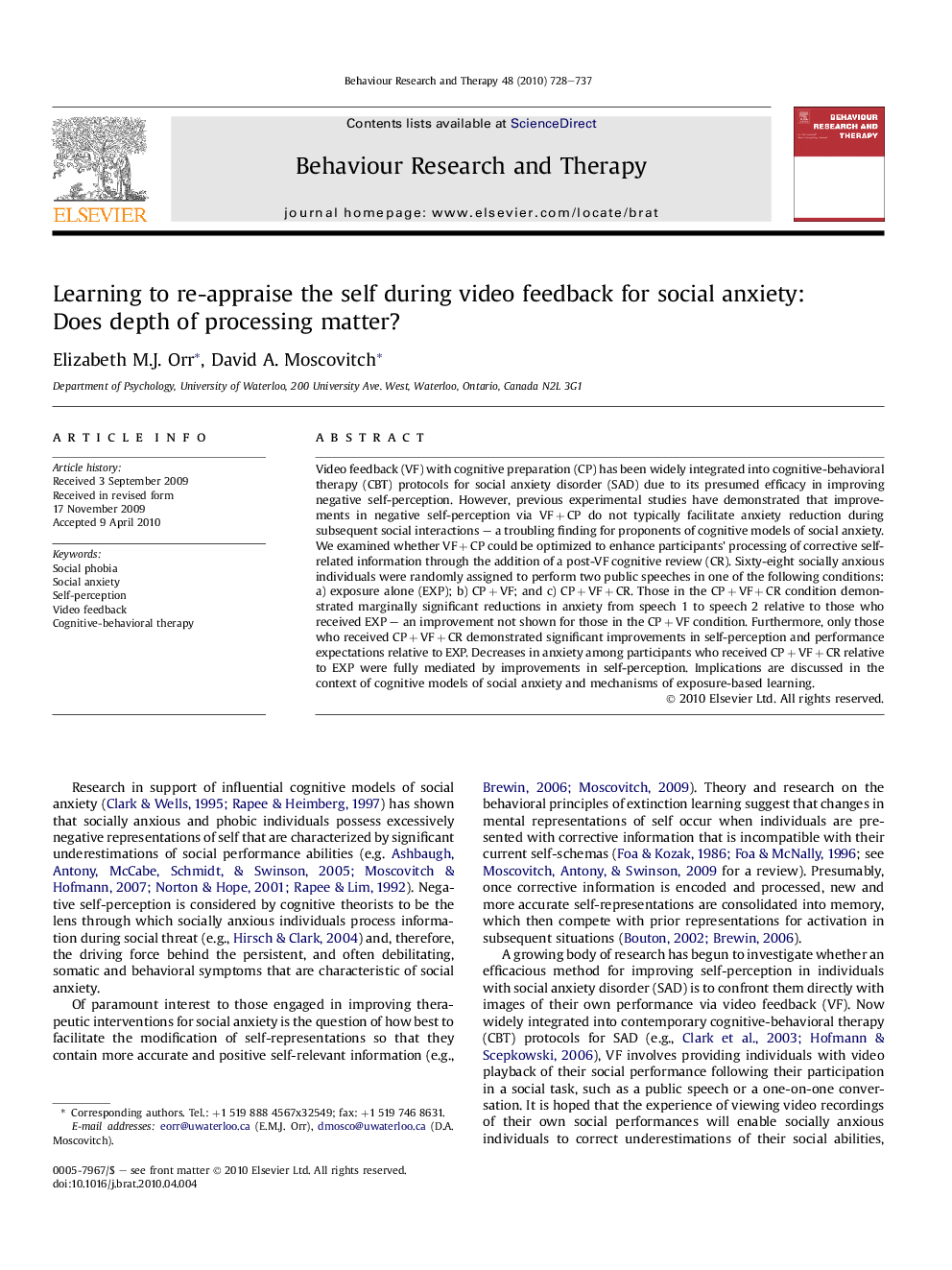| Article ID | Journal | Published Year | Pages | File Type |
|---|---|---|---|---|
| 10444545 | Behaviour Research and Therapy | 2010 | 10 Pages |
Abstract
Video feedback (VF) with cognitive preparation (CP) has been widely integrated into cognitive-behavioral therapy (CBT) protocols for social anxiety disorder (SAD) due to its presumed efficacy in improving negative self-perception. However, previous experimental studies have demonstrated that improvements in negative self-perception via VFÂ +Â CP do not typically facilitate anxiety reduction during subsequent social interactions - a troubling finding for proponents of cognitive models of social anxiety. We examined whether VFÂ +Â CP could be optimized to enhance participants' processing of corrective self-related information through the addition of a post-VF cognitive review (CR). Sixty-eight socially anxious individuals were randomly assigned to perform two public speeches in one of the following conditions: a) exposure alone (EXP); b) CPÂ +Â VF; and c) CPÂ +Â VFÂ +Â CR. Those in the CPÂ +Â VFÂ +Â CR condition demonstrated marginally significant reductions in anxiety from speech 1 to speech 2 relative to those who received EXP - an improvement not shown for those in the CPÂ +Â VF condition. Furthermore, only those who received CPÂ +Â VFÂ +Â CR demonstrated significant improvements in self-perception and performance expectations relative to EXP. Decreases in anxiety among participants who received CPÂ +Â VFÂ +Â CR relative to EXP were fully mediated by improvements in self-perception. Implications are discussed in the context of cognitive models of social anxiety and mechanisms of exposure-based learning.
Related Topics
Health Sciences
Medicine and Dentistry
Psychiatry and Mental Health
Authors
Elizabeth M.J. Orr, David A. Moscovitch,
